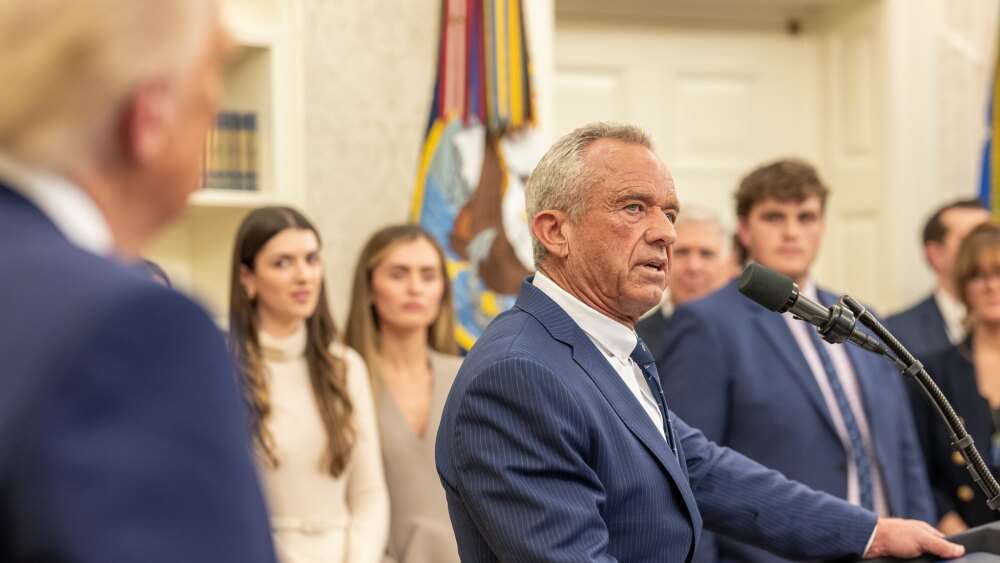The lawsuit and counter-lawsuits over the ouster of Rockwell Medical’s chief executive officer can be convoluted to follow, particularly as allegations are thrown around. BioSpace has put together a synopsis of the events.
The lawsuit and counter-lawsuits over the ouster of Rockwell Medical ’s chief executive officer can be convoluted to follow, particularly as allegations are thrown around. BioSpace has put together a synopsis of the events.
It all began with a whistleblowers complaint filed with the U.S. Securities and Exchange Commission in May. The complaint was filed by former Chief Executive Officer Robert Chioini and former Chief Financial Officer Thomas Klem. The complaint was aimed at five Rockwell Medical directors of the board: Chairman Benjamin Wolin and board directors Lisa Colleran, John Cooper, Mark Ravich and Robin Smith. The complaint was filed after the two Rockwell executives said they came into possession of evidence that “tended to show” the five members of the board were acting in concert with Richmond “to enrich themselves, waste corporate assets, and defraud the company and its shareholders at the expense of Rockwell…”
A few days after the filing of the whistleblower complaint, Sandra Orofino, a shareholder with 18,000 shares of Rockwell’s common stock sent a letter to the board seeing an investigation into allegations of wrongdoing. Orofino called for an investigation into the actions of Wolin, Ravich, Colleran and Smith. The allegations also point a finger at David Richmond, a majority shareholder who led the call for placing Wolin on the board. In the letter, Orofino alleged breaches of fiduciary duty, as well as “unjust enrichment and waste of corporate assets.” Among the allegations, Orofino said that under control of Wolin, the directors voted to increase their annual compensation from $60,000 to $250,000, as well as awarding themselves 275,000 shares of stock. Richmond, the letter claims, received $1.4 million in company funds from the board of directors.
Additionally, Orofino made specific allegations against Smith regarding her time as chairman and chief executive officer of Neostem, Inc. The letter suggests that Smith’s resignation from her previous role stems from an investigation from the U.S. Securities and Exchange Commission that claims Smith paid writers from Lidingo Holdings to publish articles touting her company’s stock. The letter says that between 2012 and 2014 more than 100 favorable articles were subsidized by Neostem. Last year BioSpace wrote about the SEC’s investigation into “fake news” articles that were crafted by companies like Lidingo in order to bolster stock price.
Former Rockwell CEO Robert Chioini was terminated by the board after he said he called a special board meeting to discuss the claims in the letter. It was at that board meeting Chioini was fired by the board, along with Chief Financial Officer Thomas Klem. In a statement, the board claimed that firing Chioini occurred following a “thorough review” of the company, including a management evaluation. Wolin said in that statement that the leadership change is necessary in order to enhance the company’s “ability to execute on its plans for growth and best position it for future success.” That termination was supported by financial planning firm Richmond Brothers, Inc., which owns nearly 11 percent of Rockwell.
Richmond is also named in a lawsuit filed in June against the company by Chioini and Klem. The lawsuit, which was filed by the duo following their termination, says that Richmond and his investment clients, “have pursued a strategy designed to enrich themselves at the expense and detriment of Rockwell and its shareholders.” The lawsuit also refers to the directors mentioned in the Orofino letter as “directors who hijacked control of a company to commit securities fraud and enrich themselves personally at their fiduciaries’ expense…” In the lawsuit, Chioini and Klem allege they were fired due to their support of the investigation called for in Orofino’s letter.
The company has filed a counter lawsuit against the ousted executives, as well as board member Ron Boyd and former board member Patrick Bagley. The counter-lawsuit alleges misconduct and mismanagement. It also claims that Chioini, Klem, Boyd and Bagley promoted “self-enrichment and poor corporate governance at the expense of Rockwell Medical’s shareholders, employees and patients in need of the Company’s life-changing drug, Triferic.” The board pointed to some concerns over management following the resignation of its auditor, Plante & Moran. In its resignation letter, the auditing firm raised some points of concern, including an issue that the former company management (Chioini and Klema, presumably, although that was not specified) “did not make them aware of an email received from CMS’s Center for Medicare and Medicaid Innovation on March 27 regarding Rockwell Medical’s pursuit of Triferic special reimbursement status.”
As the legal battles play out, Rockwell has appointed a Special Transition Committee composed of Wolin, Colleran and Cooper, who will run the company until a new CEO is appointed.





